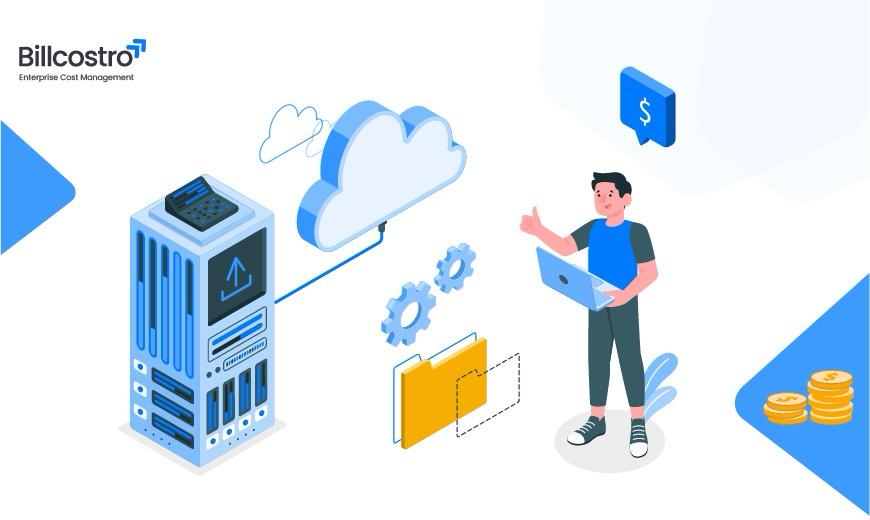
March 13, 2025, 9:01 a.m.

Scalability is one of the essential aspects of sustaining your business's growth in a fast-moving business environment. When companies grow, managing costs becomes increasingly tricky. Traditional cost management methods often lack the tools to provide real-time insights, leading to inefficiency and financial risk. This is where cloud-based cost management software steps in, as it is crucial in cutting expenditures.
When utilized, cloud technology allows businesses to get real-time cost tracking, automate financial processes, and make data-driven decisions, which, in turn, can help them scale smoothly.
Cloud-based cost management software is a digital solution provided on the cloud for tracking companies to track, analyse, and optimise their financial operations. Cloud-based management tools are different than the classic ones that need to be installed manually on-premises and get updates through manual procedures, as they ensure flexibility, simplification through automation, and access to real-time data from anywhere.
These tools are used for a wide range of business activities, including procurement, budgeting, and financial planning. As such, they should be viewed as essential in the accomplishment of the scaling objectives of organizations.
Expense tracking becomes more complex as businesses grow and operate across multiple locations. Cloud-based expense management software make a method of real-time financial monitoring, which means that the economic data is updated immediately. This not only helps businesses to detect the cost overruns but also to control the budgets and take financial decisions based on the information quickly.
Efficiency is the most important problem faced by the companies during their expansion, mainly due to increased workloads. Cloud-based automation of several financial processes like invoice processes, expense approvals, and budget allocation minimizes manual errors and thereby increases the efficiency of the operation. In addition, automation also involves the submission of financial reports at a higher speed, which is required for quick decision-making in the growing business.
Traditional cost management solutions are hardware-heavy and require serious IT infrastructure outlays. A cloud-based model that operates on a subscription basis allows businesses to scale up without huge capital investments. Companies can deploy cloud solutions to scale operations locally or globally, which means they can add more users, customize the features, and integrate different financial tools.
With the increase of business comes the expansion of atsecurity issues. By using the cloud-based cost management software, one can make sure that data is encrypted, secure access control is provided, and financial regulations are followed. The leading cloud providers provide security in various levels, which further means that sensitive financial data will be safe from cybersecurity threats and unauthorized access.
The cost management cloud, with its variety of advanced analytics solutions, custom dashboards and predictive analytics tools, emerged as an affordable and reliable platform; however, the lack of qualified personnel may hinder its implementation. Consequently, the existing workforce needs to be complemented with IT and finance experts dedicated to impart required insights derived from predictive analytics.
Growing businesses often rely on multiple software solutions for HR, procurement, sales, and finance. Cloud-based cost management software integrates,impartingseam lessly with ERP (Enterprise Resource Planning) systems, accounting software, and project management tools, ensuring that financial data flows across departments.
Representing fast-growing ventures, most of them are typically split into different combinations of budgeted and spending items. Besides that, the costs can be controlled and kept within the budget. Cloud-based cost management software gives organizations budget forecasting to improve planning, options for cost optimization to are top efficiency, and detailed expense reports to let them know the exact amount spent.
Startups and small businesses benefit from low-cost, subscription-based cloud solutions that help them manage expenses without large upfront investments. Real-time cost tracking and automated financial reporting enable small businesses to stay on top of their budgets and make strategic growth decisions.
For companies moving into new markets, the handling of multicurrency transactions; tax transactions,nce; and vendor payments is quite complicated. Cloud-based cost management systems offer automated currency conversion, tax compliance and location expense management, relieving or eliminating difficulties in finance.
Economic groups that involve construction, IT services, and consulting are high cost units requiring the tracking of cost, project specific expenses, and profitability. Cloud-based software allows companies to set funds specifically for projects, which ensures the efficient financial control and transparency.
E-commerce businesses have to handle inventory costs, shipping expenses, and dynamic pricing models. Cloud-based cost management solutions to interconnect with the e-commerce platform for real-time sales and expense tracking, ensuring that businesses maintain healthy profit margins while scaling operations.
Selecting the right software is critical to achieving scalability. Here are some factors to consider:
Billcostro is a cloud-based cost management platform designed to help businesses streamline their budgeting, expense tracking, and financial planning processes. With features like automated expense reporting, travel request management, approval workflow customization, and seamless integrations, Billcostro enables companies to manage costs efficiently while scaling operations.
It provides real-time data insights, ensuring businesses maintain financial control and optimize expenses. Whether you’re a startup or an enterprise, Billcostro offers flexible pricing plans and robust tools to simplify cost management and enhance operational efficiency.
As businesses scale, efficient cost management becomes a necessity rather than an option. Cloud-based cost management software provides the real-time insights, automation, and financial control needed to sustain growth without compromising efficiency. Whether you're a startup, SME, or large enterprise, leveraging cloud technology ensures cost optimization, streamlined operations, and long-term financial sustainability. Investing in the right cloud-based cost management solution will support scalability and enhance business profitability and competitiveness in an increasingly digital world.